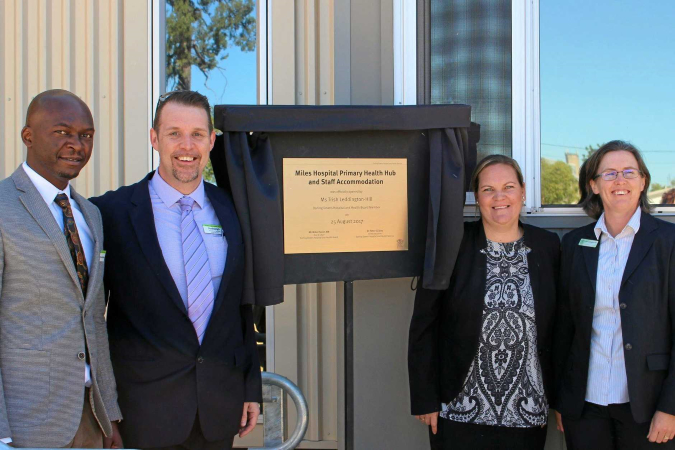27
Dec 2018
New $2.6 million primary health hub and staff accommodation opened at Miles Hospital
Published in General on December 27, 2018

Some good news for the humble town of Miles as the latest edition to the Miles Hospital has just arrived. Located right at heart of the humble town of Miles, Miles Hospital is a crucial lifeline to the well being of the people of Miles. Because the hospital is the only public hospital in town, limited resources and patient accommodation can be a real issue.
Fortunately, the new Primary Health Hub has just officially opened. Leaders of the community all proudly introduced the new health hub to the public.This $2.6 million dollar venture was built in the hopes of allowing Miles Hospital to hold more patients and provide better staff accommodations to residents of Miles.
The newest addition to Miles Hospital can now hold up to 50 more visitors each week with offices allowing for three onsite doctors at any given time.
“It’s great news for the local community and local staff to have these newly built state-of-the-art facilities,” Says Cameron Dick the minister of Health and Ambulance Services.
Along with providing on-site clinicians with eight modern units that provide multiple health services and resources, Dick also says the health hub provides a much-needed conference space that can facilitate all kinds of work such as training, education, and meetings.
The minister says that he is more than satisfied with the final product and what it can do for the people of Miles.
“I commend the team for all the planning efforts put into bringing these important community projects to fruition,”
Ms. Trish Leddington-Hill of the Darling Downs Hospital and Health Service’s (DDHHS) says that the contributions made by Darling Downs were key to ensuring the project’s success.
“We are proud that both projects, worth $2.6 million, were funded by the DDHHS as a result of a budget surplus. Our local staff have already passed on feedback from the community that facilities are making a positive contribution to the health services available locally.”
Adding onto the excitement, Acting Director MeeMee Steinberg highlights the attention the hospital will garner from students abroad and local
“It has been fully booked from the start. A real benefit is that some of the biggest users of accommodation are students and it’s become a drawcard for the TAFE and universities students considering working out here in the country.”
The hub’s assurance of providing good working skills and quality experience will attract more people to the town of Miles says Steinberg.
“They know they will be well looked after and that is attracting people to Miles Hospital. It's been a huge plus for the community because we now have a physiotherapist and child health room and large conference room on site,”.
In short, everybody who has worked on the project is ecstatic about the results and what the hub could entail for better working, living, and quality of life for the people of Miles and beyond.
“We feel very fortunate that Miles Hospital has been the recipient of these great new facilities,” says Steinberg.









